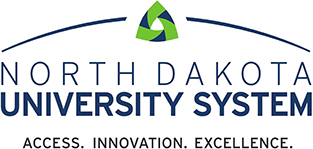
28 Apr Board talks self-assessment, strategy
At its regular April meeting, the State Board of Higher Education tackled a handful of topics, including its own self-assessment, the ongoing strategic process and upcoming retreat, and a legislative update.
Chief Compliance Officer Chris Pieske provided the Board with a summary of the results of its self-assessment, adding that the next step would be priorities determined by the Board. Those priorities will be presented at the next meeting. Member Jeffry Volk noted that more information would be required, including official feedback concerning member comments. Pieske noted that the numerical data and comments were a matter of public record and open to the Board. Chancellor Mark Hagerott noted that, like the comprehensive evaluations, raw commentary was not included as there was the risk it could be targeted against some individuals. The Board ultimately voted to approve the self-assessment, including the distribution of additional data.
Hagerott and Vice Chancellor of Strategy and Strategic Engagement Jerry Rostad spoke about the upcoming strategic retreat, which would focus on the Board’s priorities for the future and the continuation of the Envision 2030 initiative, Envision 2035+. The 2035+ planning would include the adoption of new topical areas of study to determine their effect on the student body and workforce, and how to adopt priorities from such a brainstorming session. The presidents will present on their specific campus needs, new advisory teams will be formed and staffed with the appropriate subject matter experts.
Vice Chancellor of Information Technology and Chief Information Officer Darin King brought forward the 2023-2025 NDUS IT Strategic Plan and the 2023-2025 CTS Strategic Plan. King noted that the documents were updated regularly and noted the distinction between them. According to King, the NDUS IT plan was broken down into four goals that aligned with the NDUS Strategic Plan. He noted that the CTS-specific plan differed as it was a document that drove tactics at the operational level. King stated that their NDUS plan aligned with system goals, while the CTS IT plan interacted with the campus-level needs. After detailed discussion, the Board ultimately approved the plans.
Hagerott then led the legislative update, at times deferring to the expertise of executive staff who had been following and testifying on legislative items. He noted that in the last week there was a flurry of activity to cut the budget of system office and the campuses. That was corrected late in the process and ultimately the session had been successful for the university system. Vice Chancellor for Administrative Affairs and Chief Financial Officer David Krebsbach broke down House Bill 1003 in detail, starting with the base budget and changes from previous years, then moving into capital and one-time funding projects. Legislative Liaison Tammy Dolan reported that there had been 176 bills that the system tracked, 67 failed, 75 passed, and at the time of the meeting the rest were still under discussion. She briefly detailed the top 37 bills that the system office had been interested in the most.
Board member Kevin Black presented the academic and student affairs committee, which included funding requests from several colleges and universities, and 38 tenure recommendations and faculty appointments. All were approved.
Board member Nick Hacker brought forward the audit committee and efficiency and opportunity committee agendas, which included the detailed internal audit plan for fiscal year 2023, and the 2023 Compliance Plan and Priorities.
Chair Casey Ryan and Board member Danita Bye respectively brought forward the research and governance committee agendas, which included discussion on the CHIPs Act, HERD data, and a thank-you to researchers throughout the system for their diligent work. Bye then spoke to the policies and procedures flowchart and how recommendations had created a better path forward for the governing board.
Vice Chair Tim Mihalick updated the Board on the budget and finance committee, which included fundraising initiatives for Lake Region State College and North Dakota State College of Science for a new athletics performance center and installation of artificial turf, respectively. The update also included authorization for University of North Dakota to proceed with an addition to its athletic center, and capital authorizations for Bismarck State College and Minot State University.
Student member of the Board Sadie Hanson provided an update from the North Dakota Student Association, noting that NDSA’s last meeting was at North Dakota State University for its annual elections. They also discussed a resolution regarding the TikTok policy.
Faculty Advisor to the Board Lisa Montplaisir, Ph.D., gave an update from the Council of College Faculty, focusing on tenure and other legislative topics. The group was actively collecting tenure and post-tenure reviews. She noted that CCF was excited to be a part of the process.
Staff Advisor to the Board Michael Linnell, gave an update from the State Staff Senate, noting the group met and conversation centered around the budget bill. He said that the membership greatly appreciated the salary increases and continued funding for benefits. He said an ongoing concern was employee burnout, staff mental health, professional development and team building.
In other action, the Board approved SBARE appointments for Scott Ouradnik and Jim Bahm. The Board also heard a mission statement update from Dakota College at Bottineau and heard the first readings of Policies 461 (Digital Literacy), 330 (Policy Introduction, Amendment, Passage), 302.7 (Research and Governance Committee), and 100.6 (Authority & Responsibility of the State Board of Higher Education). At one point, the Board entered executive session to discuss an investment consultant request for proposal. Ultimately, the Board approved Global Retirement Partners, LLC to serve as the investment advisor for the NDUS retirement plans. The Board will meet next for its annual strategic retreat on May 22, followed the day after by a regular Board meeting May 23.


